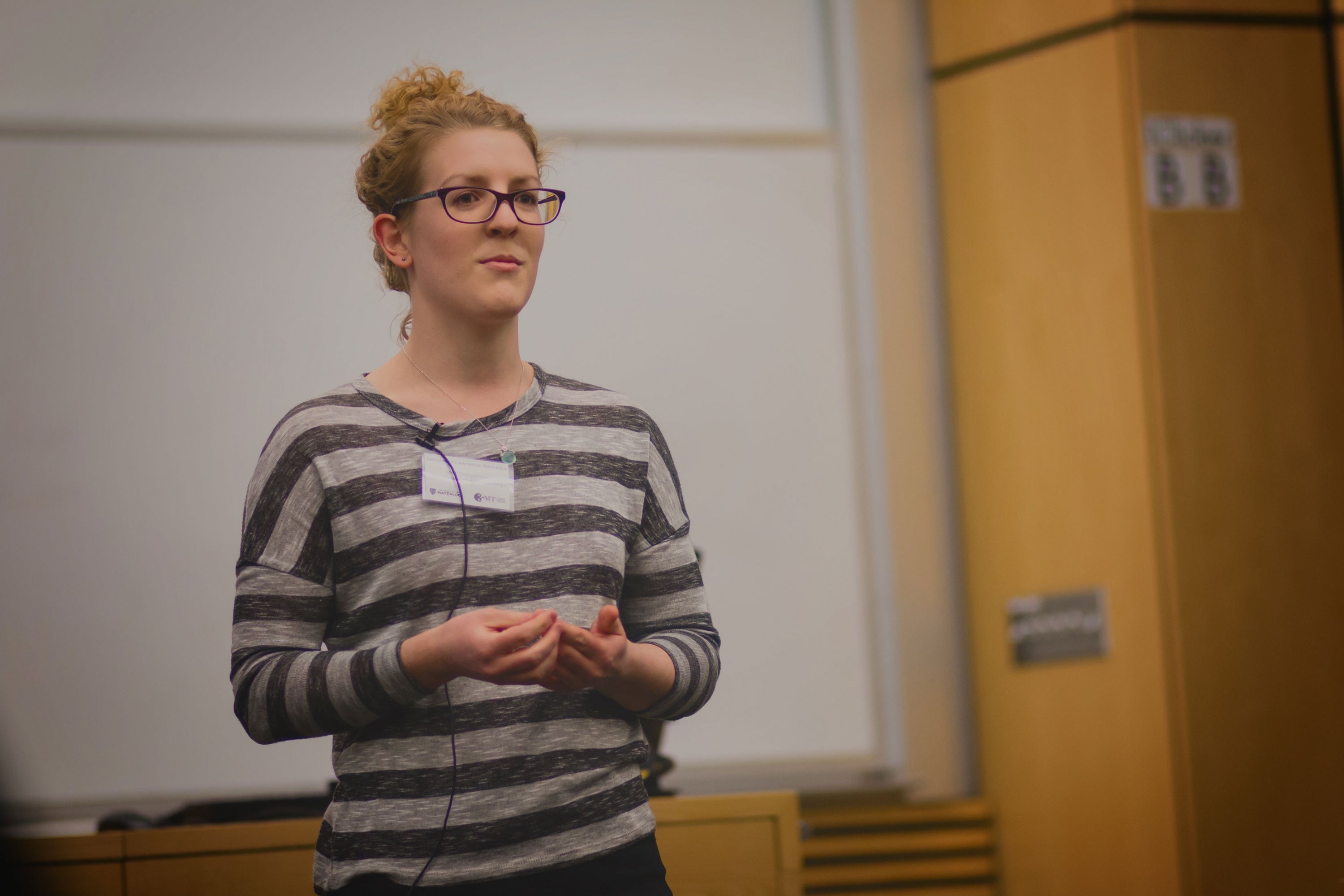“It seems that we are in a transitional moment - individuals and institutions are starting to grapple with the fact that PhD training must be modified in order to remain maximally rewarding and relevant,” says Masa Torbica, PhD candidate in English.
Both Masa and Andria Bianchi, PhD candidate in Philosophy, attended The Future of the PhD in the Humanities conference in the spring, alongside the Dean of Arts, Doug Peers, and the Associate Dean of Graduate Studies, Linda Warley. The conference provided delegates from across Canada with the opportunity to discuss the importance of graduate education in the humanities, and develop tools to restructure PhD programs and enhance the focus on non-academic career preparation.

“Although it would be ideal to obtain a tenure track position in academia, the job prospects in the humanities are scarce,” explains Andria. “I plan to become a bioethicist after I graduate, assisting patients, families, and health care providers with the process of making ethically complex decisions.”
There is an urgent need for PhD training to change, Masa explains. “Students are suffering under the current structure: struggling to simultaneously fulfil degree requirements, stay afloat financially, and somehow bridge the chasm between academic training and non-academic employment.”

Anthropology graduate student presenting at Arts 3MT
“At the University of Waterloo, we are working hard to support graduate students in recognizing and developing their tremendous capacities in areas such as research, creative and critical thinking, communications, and project management, which make them ideal candidates for a range of meaningful and satisfying careers” says Associate Dean, Linda Warley. The Centre for Career Action and the Graduate Studies Office offer workshops and online resources such as GRADventure and MyGradSkills to help graduate students develop their skills and explore their options beyond academia. The university also holds the Three Minute Thesis competition annually. The Faculty of Arts is participating in the TRaCE project, a Canada-wide initiative focused on tracking and interviewing humanities PhD graduates about their career paths to better understand and prepare graduate students for a wide range of opportunities.
Many Arts departments offer workshops or professionalization courses for graduate students, or include career focused elements into regular graduate seminars, as well as host alumni talks, and professional networking events.
The Philosophy department has recently announced a new PhD in Applied Philosophy where students do a research placement to apply philosophical knowledge and skills to practical problems in hospitals, charities, government, industry, banks and tech startups. As part of the pilot project, Andria completed some of her doctoral research at a hospital in Toronto. “We need to focus on preparing students for a range of professional careers. Applied programs give students in the humanities the opportunity to apply their academic skills to the non-academic world,” says Andria. “Universities and departments may also consider implementing alumni mentorship programs or accepting non-traditional dissertations.”
“I was encouraged by the overwhelming consensus that the solution should not be to cut PhD admissions, but rather to reshape the type of training students get, in order to better reflect the eventual career trajectory they are likely to have,” echoes Masa.